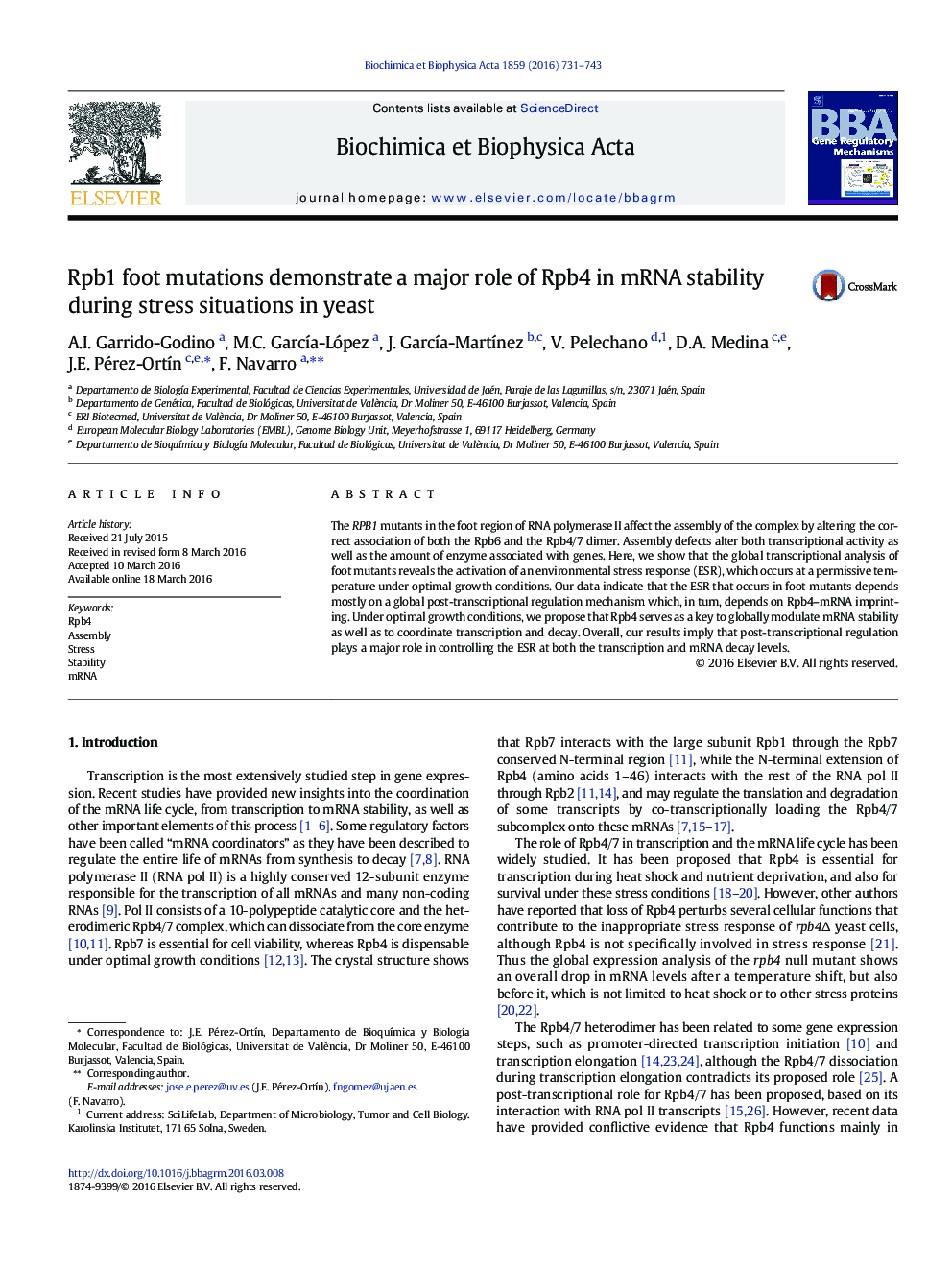| Article ID | Journal | Published Year | Pages | File Type |
|---|---|---|---|---|
| 1946317 | Biochimica et Biophysica Acta (BBA) - Gene Regulatory Mechanisms | 2016 | 13 Pages |
•Environmental stress response (ESR) is modulated by post-transcriptional regulation.•RNA pol II assembly defects affect mRNA transcription/decay and induce ESR.•Rpb4 globally modulates mRNA stability and coordinate transcription and decay.
The RPB1 mutants in the foot region of RNA polymerase II affect the assembly of the complex by altering the correct association of both the Rpb6 and the Rpb4/7 dimer. Assembly defects alter both transcriptional activity as well as the amount of enzyme associated with genes. Here, we show that the global transcriptional analysis of foot mutants reveals the activation of an environmental stress response (ESR), which occurs at a permissive temperature under optimal growth conditions. Our data indicate that the ESR that occurs in foot mutants depends mostly on a global post-transcriptional regulation mechanism which, in turn, depends on Rpb4–mRNA imprinting. Under optimal growth conditions, we propose that Rpb4 serves as a key to globally modulate mRNA stability as well as to coordinate transcription and decay. Overall, our results imply that post-transcriptional regulation plays a major role in controlling the ESR at both the transcription and mRNA decay levels.
